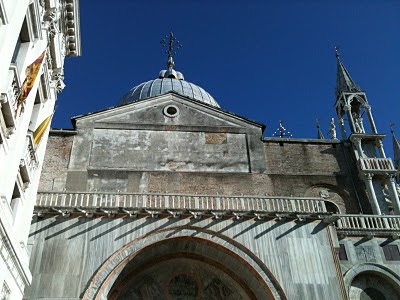terrifying.
For those who aren't familiar with the Troubles in Northern Ireland,
they truly began 800 years ago when England concquered Ireland and
imported English and Scottish Protestants, creating a caste structure.
Over hundreds of years, native Irish Catholics were systematically
persecuted. However, in the northern portion if Ireland, more British-
loyal Protestants lived than Irish-loyal Catholics, so after the War
for Irish Independence, when 26 of the 32 counties won their
independence from Britain, the northern 6 counties opted out of the
new Republic of Ireland. They considered themselves British citizens,
and didn't want to be a single small province in a predominantly
Catholic Irish country.
And so the fighting began, because the republican Catholic minority
wanted to be part of the Irish Republic, and many of those in the
Irish Republic harbored bitterness about the poor treatment over the
centuries and didn't feel that they could rest until all British
influence had been driven out of the country.
Please be aware, btw, that this is only the barest overview of the
Troubles- there is so incredibly much that I can't even begin to touch
on here.
Between 1969 and the cease-fire, over 4,000 people died. That may not
sound like many, but as a percentage of the population it is the
equivalent of 900,000 American deaths. In one 1/2 mile block that we
saw, 170 people were murdered.
The murals are all over Belfast, and there are still approximately a
dozen deaths every year- including one last week as I write this.
The loyalist murals are often violent, angry at losing some of the
power over their country to a group which has so so recently killed
their family members. The republican murals are starker, sadder,
speaking of centuries of oppression against their people. All of them
are beautiful.
One that particularly caught my eye was done by Australian Aborigines,
testifying to the link between the two indigenous people who have been
subjugated by British conquerors. Considering the number of Australian
tourists I have met in Europe who had the money to travel, it's
thought-provoking.
I have to write a short reflections paper this week, and that will
likely be my topic.
One Unionist mural quotes Oliver Cromwell, who said that Catholicism
is a political system and not a religion, and that 'there will be no
peace in Ireland until the Catholic Church is crushed'.
Gerry, our guide, arranged for us to speak to a mural artist and one
of the things that he said will stick with me forever:
"History is like a rearview mirror. Check it, but if you only focus on
it without looking ahead, you will crash." -Danny D, a former IRA
member who was interned for 10 years in Long Kesh.
After speaking to Danny, Gerry took us to the Republican Museum, a
privately funded and run 'foil' for the British version taught in the
schools here- since Northern Ireland is still owned by Great Britain,
the English story of history is what is taught in public schools. I
won't speculate what is taught in the private parochial schools.
It was intense, and sobering. It began with tribute to the women who
were imprisoned or otherwise victimized during the Troubles-
specifically Republican women, but all were mentioned. There was an
extremely authentic reproduction of a cell from the Long Kesh
Internment Camp, which gave all of us a shiver. A ton of artifacts
were there, donated by former prisoners and displayed lovingly.
Painted harps, boidhrrans, quilting projects, decomissioned weapons,
all of it was there. I had already planned to make a donation, but the
Drs requested that I loan them £30 and they would pay me back to do
it. It was.... amazing and impressive. Afterwards, we saw the Bobby
Sands mural- the best-known mural in Belfast.
Lunch was an interesting affair- I am exhausted (and still a little
sick)- and we all had a great deal to process. We had a meeting that
was nearly an hour long, talking and processing and sharing our
thoughts about it.
The only real blasphemy is the refusal of joy. -"Jeffrey"











































































































































